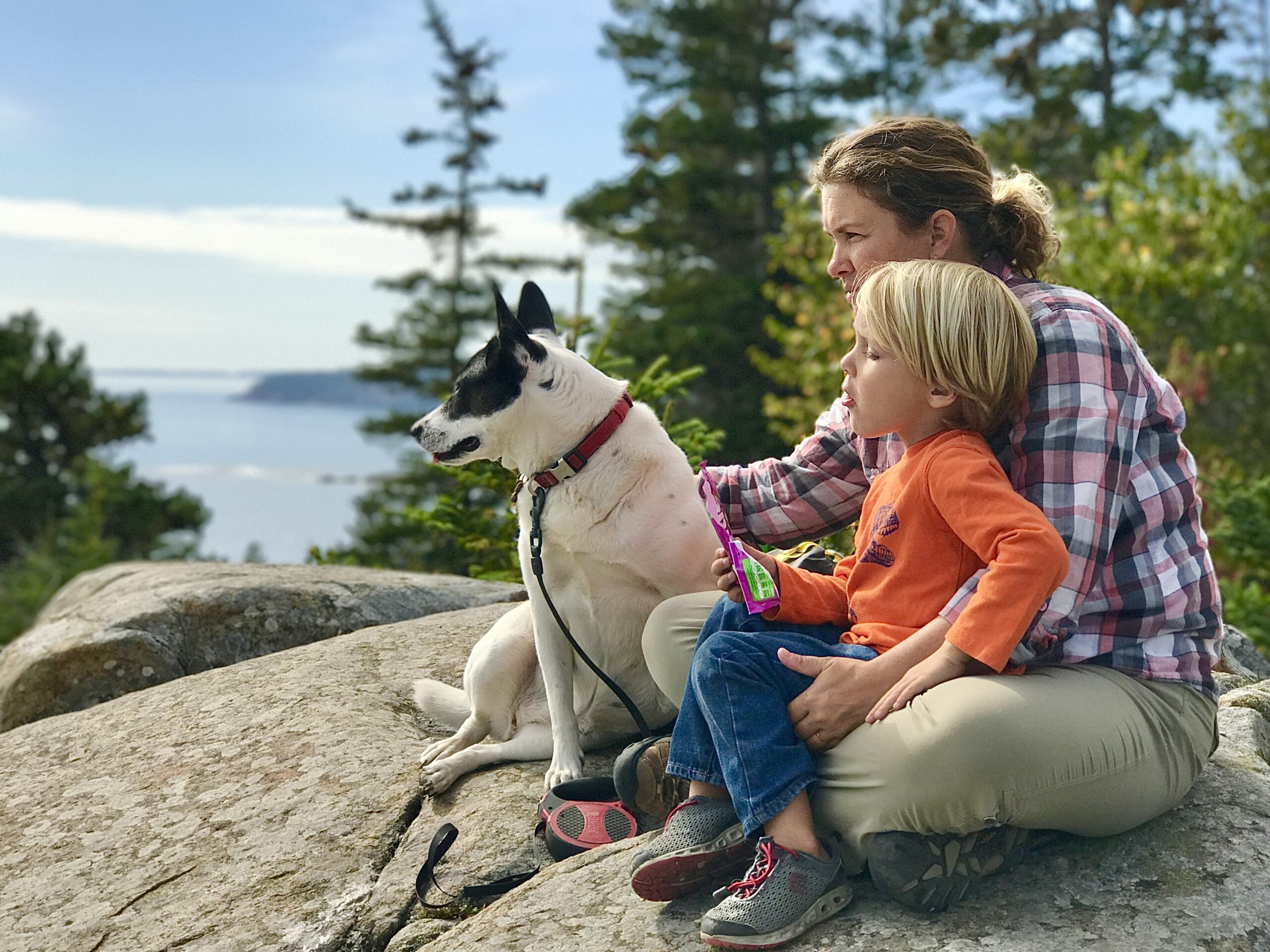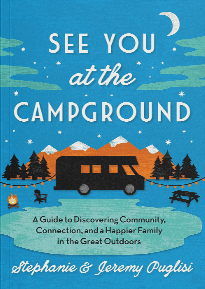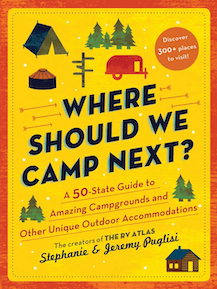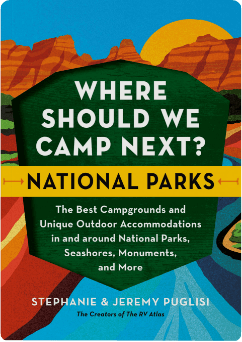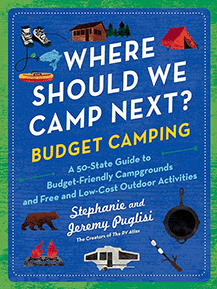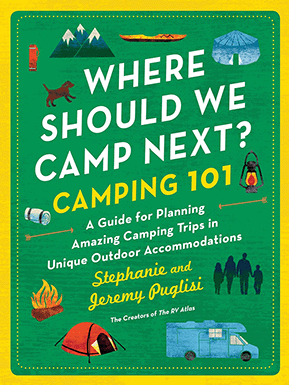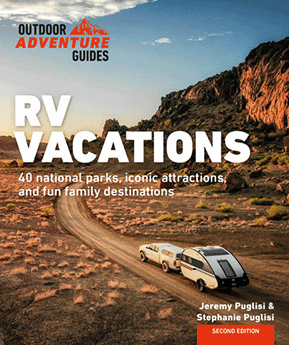On this week’s episode of The RV Atlas Podcast, we turned our attention to a topic that so many RVers eventually face: how to thoughtfully add a dog to an RVing and camping lifestyle. This episode was born from two things, questions we’ve seen time and time again in the RV Atlas Facebook group, and our own family’s emotional journey after losing our beloved Maggie in September.
Maggie camped with us for well over a decade. She was the dog who lived for the campground—she’d leap into the truck long before we were ready to leave and lived her happiest life on the road. We dedicated one of our books to her, and it felt right to dedicate this conversation to her, too.
This isn’t just an episode about how to camp with a dog—there are tons of resources for that. This is about something deeper and more foundational:
How do you choose the right dog for an RVing family?
How do you find a match that fits your lifestyle, protects the dog’s well-being, and sets both your family and your future furry friend up for success?
Here are some of our own tips for this journey, shaped by our own experiences and the insightful comments shared by members of our Facebook community.
Understanding What Kind of Dog Fits Your Camping Lifestyle
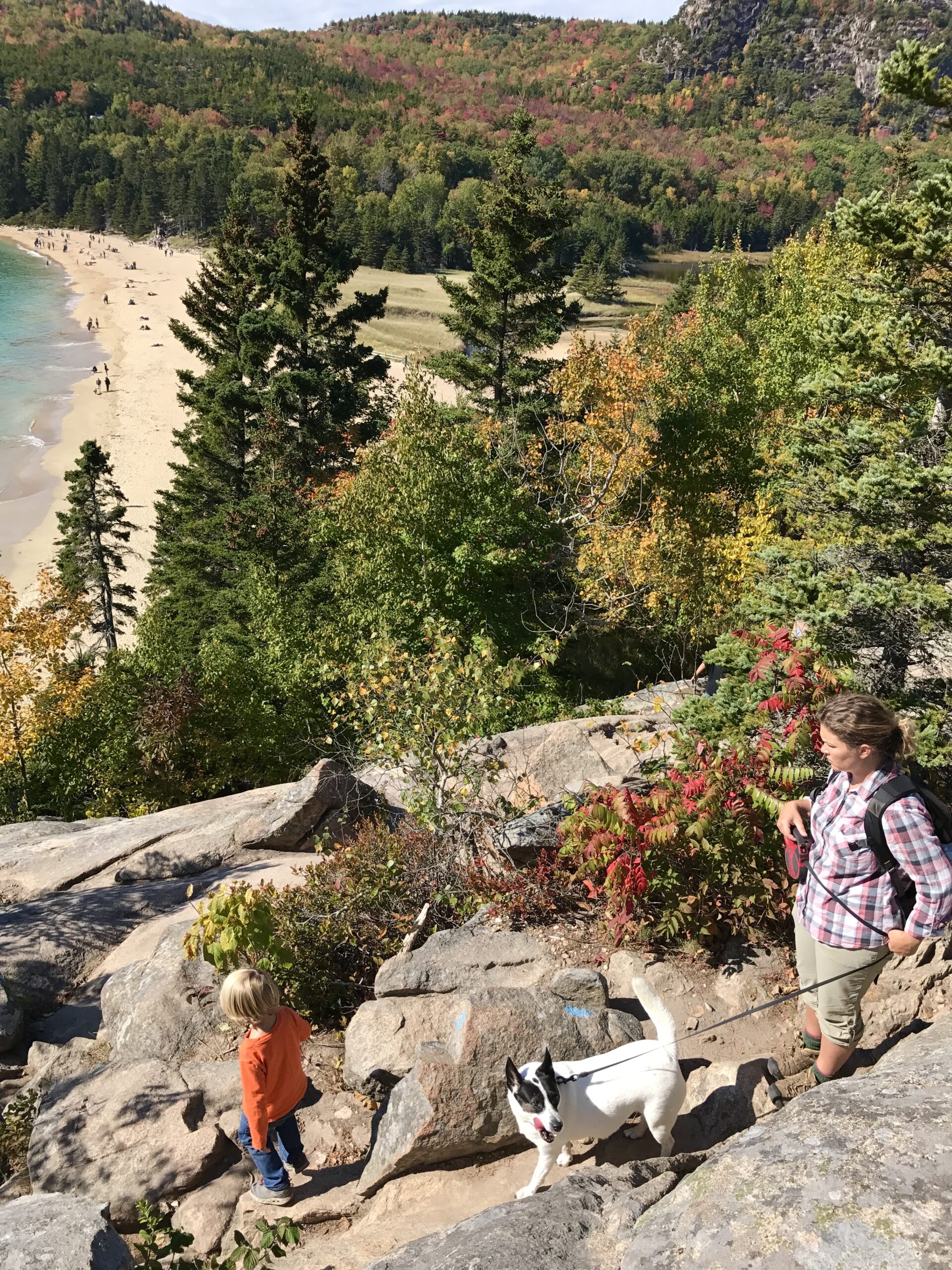
A common question that pops up in RV groups is:
“What kind of dog should we get?”
And a very common answer online is usually: “Rescue is the best breed.”
And while we strongly believe in rescuing (we’ve been involved in animal rescue our entire lives), simply “getting any rescue dog” is not the full story. It’s okay—and important—to think carefully about breed, size, temperament, and energy level, especially when you’re an RVing family.
Breed Characteristics Matter
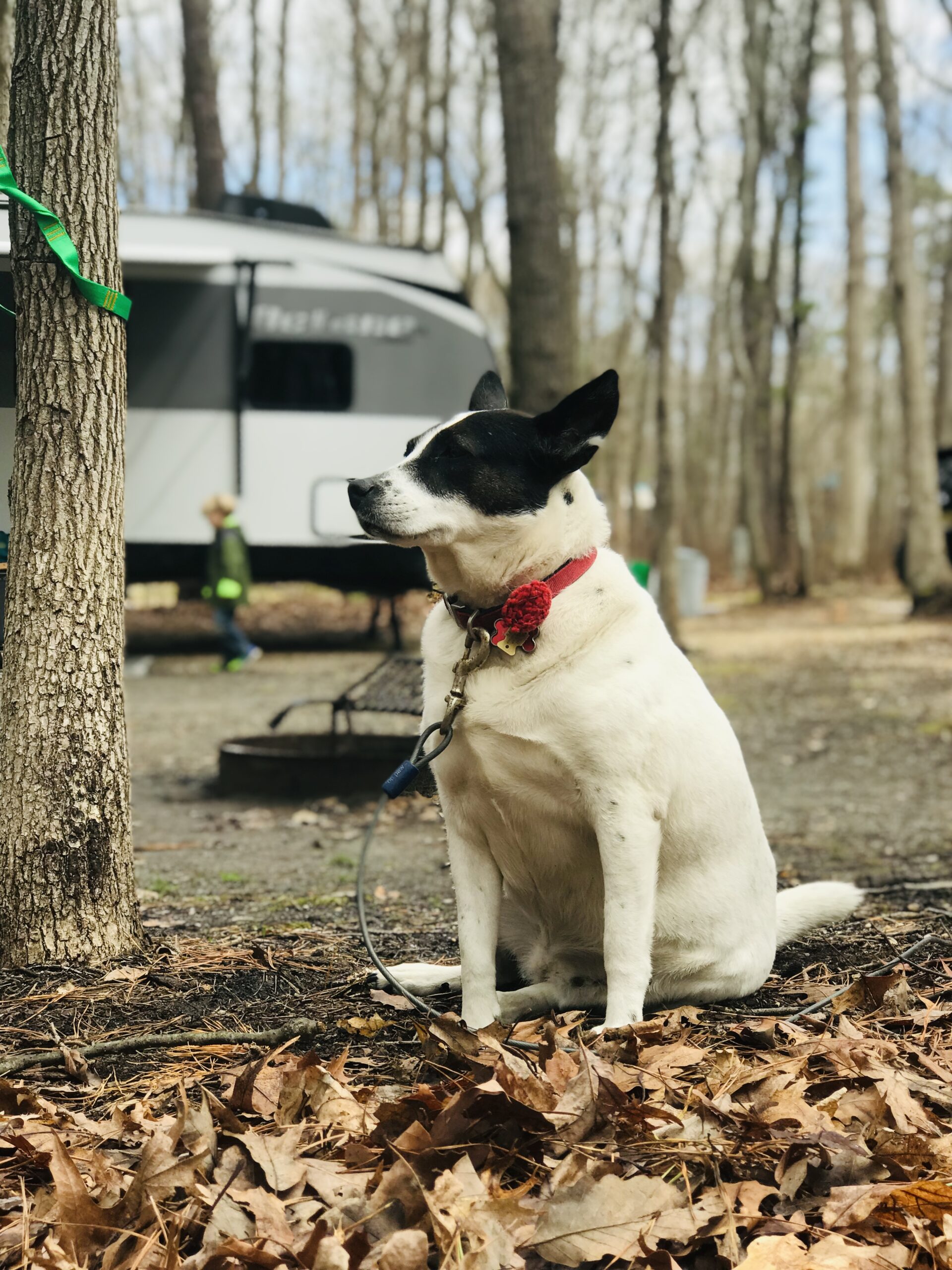
When we adopted Maggie, we intentionally looked for a working dog breed because:
- We wanted a dog who would stay close and not wander (no hounds catching scents and disappearing).
- We wanted a dog that could handle a solid range of temperatures.
- We wanted a dog with stamina to hike miles with us.
- We wanted a dog that wouldn’t be anxious in new environments.
All of that lined up beautifully with who Maggie became in our family.
Size Matters Too
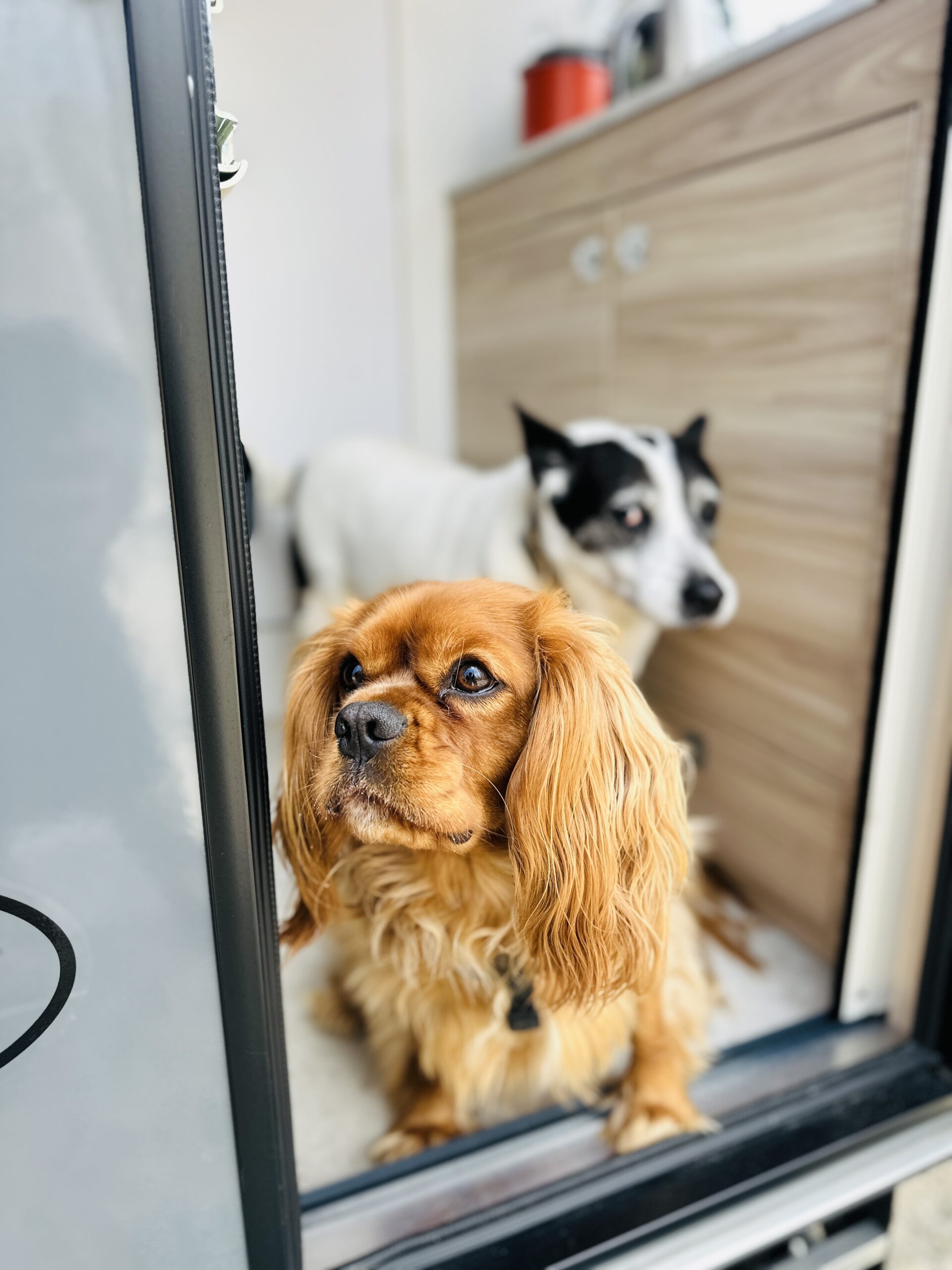
Not every dog fits every RV. A big dog in a tiny Class B can be stressful. A small dog in a fifth wheel might be perfect. Think about:
- Where the dog will sit in the tow vehicle
- Whether you have kids sharing the backseat
- Where a crate will fit inside your RV
- Whether you have space for multiple pets if you ever expand your fur family
Reactivity and Temperament
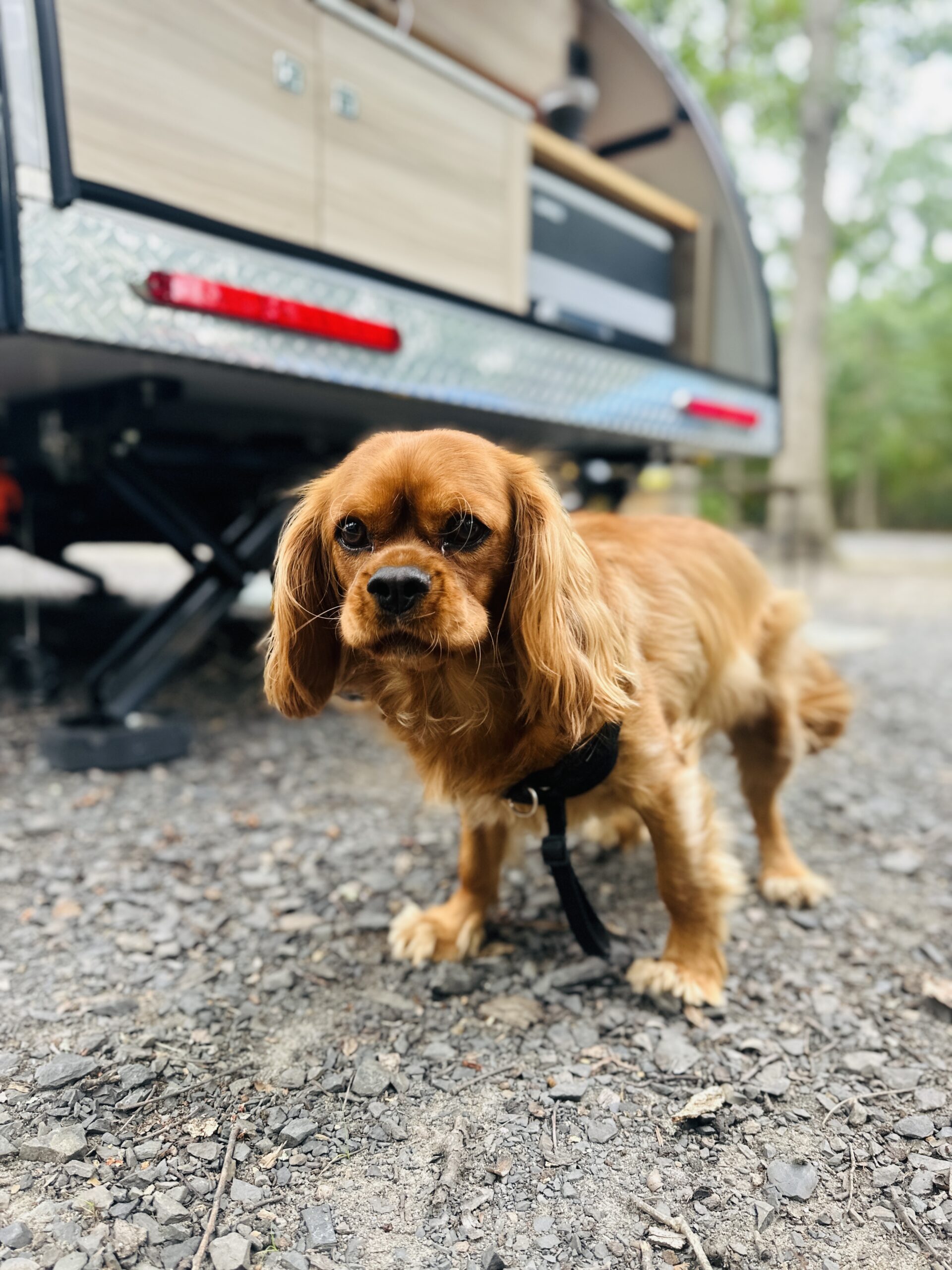
Campgrounds are full of:
- Kids
- Bikes
- Wildlife
- Golf carts
- Other dogs (over 50% of RVers camp with one)
If you choose a dog who struggles with constant stimulation or new environments, every trip can become challenging.
Why Foster-Based Rescues Are Ideal for RVers
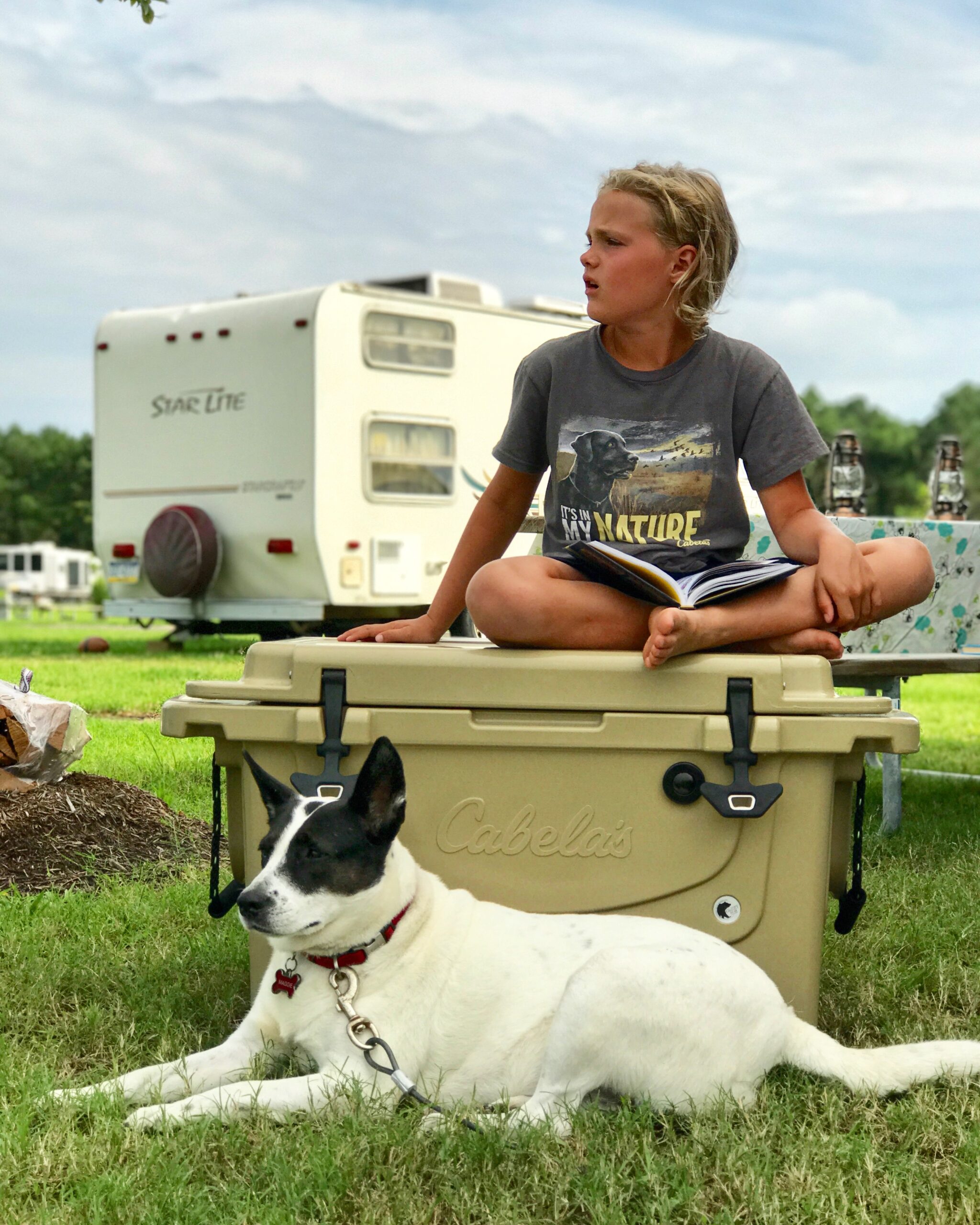
This is the part of the conversation we felt most passionate about. Rescue doesn’t mean adopting blindly.
It means adopting thoughtfully.
Rescue dogs in shelters can be overwhelmed, anxious, or shut down—making it hard to see their true personalities. Foster dogs, by contrast, have already lived in a home, so you can ask very specific questions, like:
- How do they ride in the car?
- Are they crate trained?
- How do they behave with kids?
- Do they bark at noises?
- Can they relax when left alone?
- Are they comfortable outdoors?
One Facebook member, Natalie, summed it up perfectly:
“We always adopt our dogs at least one year old. I want to know their personality, and adult dogs are easier to match to our lifestyle.”
We have had this experience ourselves. Before adopting Maggie, we met a dog named Cookie—sweet, but not a good match for our young kids at the time. Walking away was heartbreaking, but it was the right decision. Maggie found us soon after, through a foster mom who read our detailed lifestyle description and said, “This is the family she deserves.”
That match became such a blessing to us.
Match the Dog Not Just to You—But to Your Camping Style
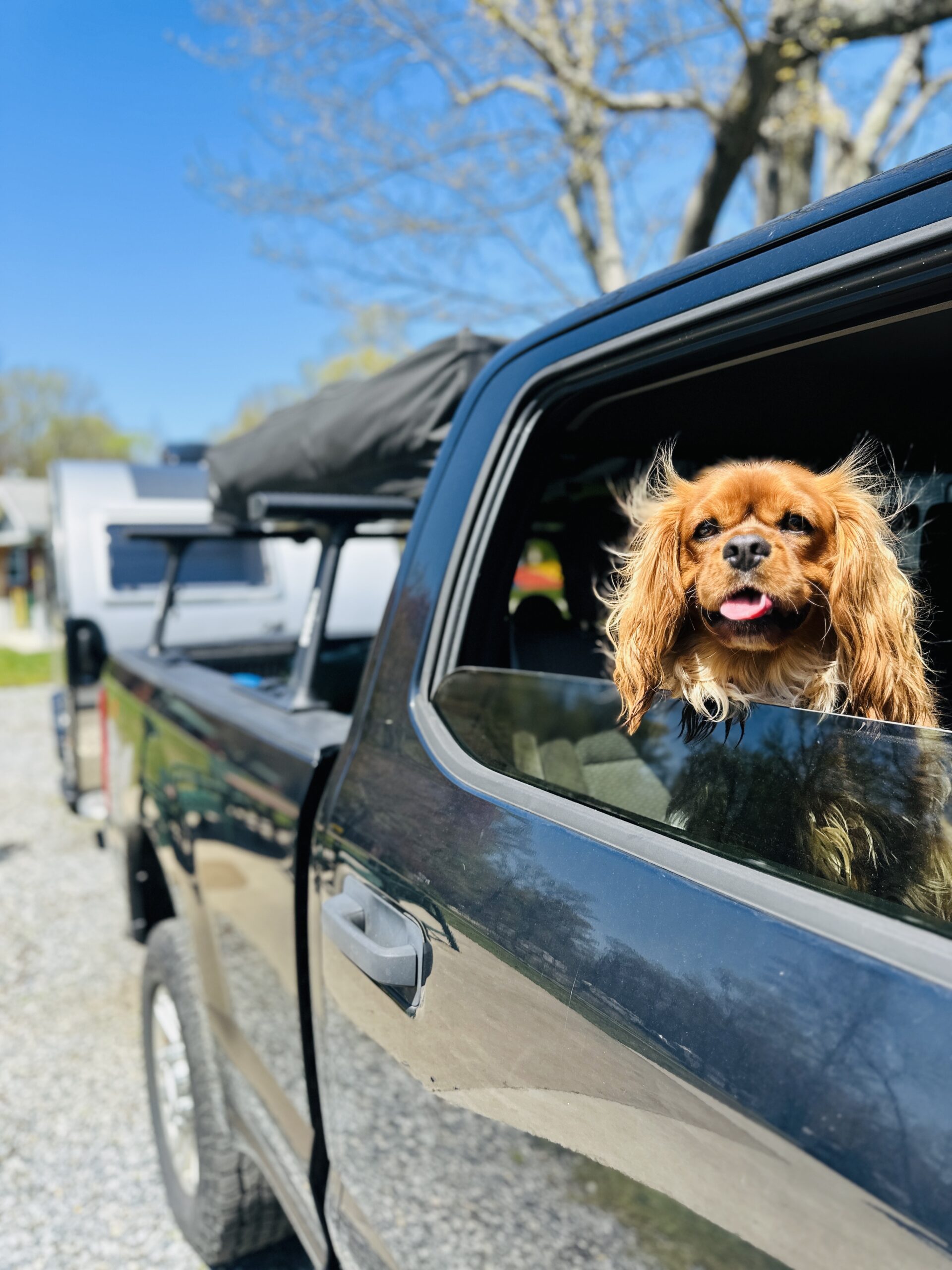
Your camping habits matter just as much as the dog’s traits. Ask yourself:
Do You Boondock or Always Use Hookups?
If you camp in high heat without electricity, certain breeds simply won’t thrive.
When we visited Badlands National Park, we intentionally booked electric hookups—even though the more scenic sites didn’t have them—because Maggie needed AC while we hiked.
Do You Take Long Day Trips Away From the RV?
Not all dogs are comfortable being left alone in a small space for hours, even with AC and a pet monitor. Some dogs thrive on napping; others panic.
Do You Stop at Attractions Along the Drive?
You may want to pop into a museum or historic site—but if your dog can’t be left alone safely, you’ll need to rethink your travel rhythm.
As Facebook member Dave shared:
“We are explorers. We love dogs, but it wasn’t fair to leave ours locked in the RV while we went hiking. We’ll get another dog when we stop traveling so much.”
That honesty is important.
Are You Prepared for Breed or Pet Limits?
Some campgrounds have:
- Breed restrictions (due to insurance)
- Pet limits (common two-dog max)
If you travel with multiple pups, be ready to call campgrounds and do your research ahead of time.
Timing Your Adoption Can Make All the Difference
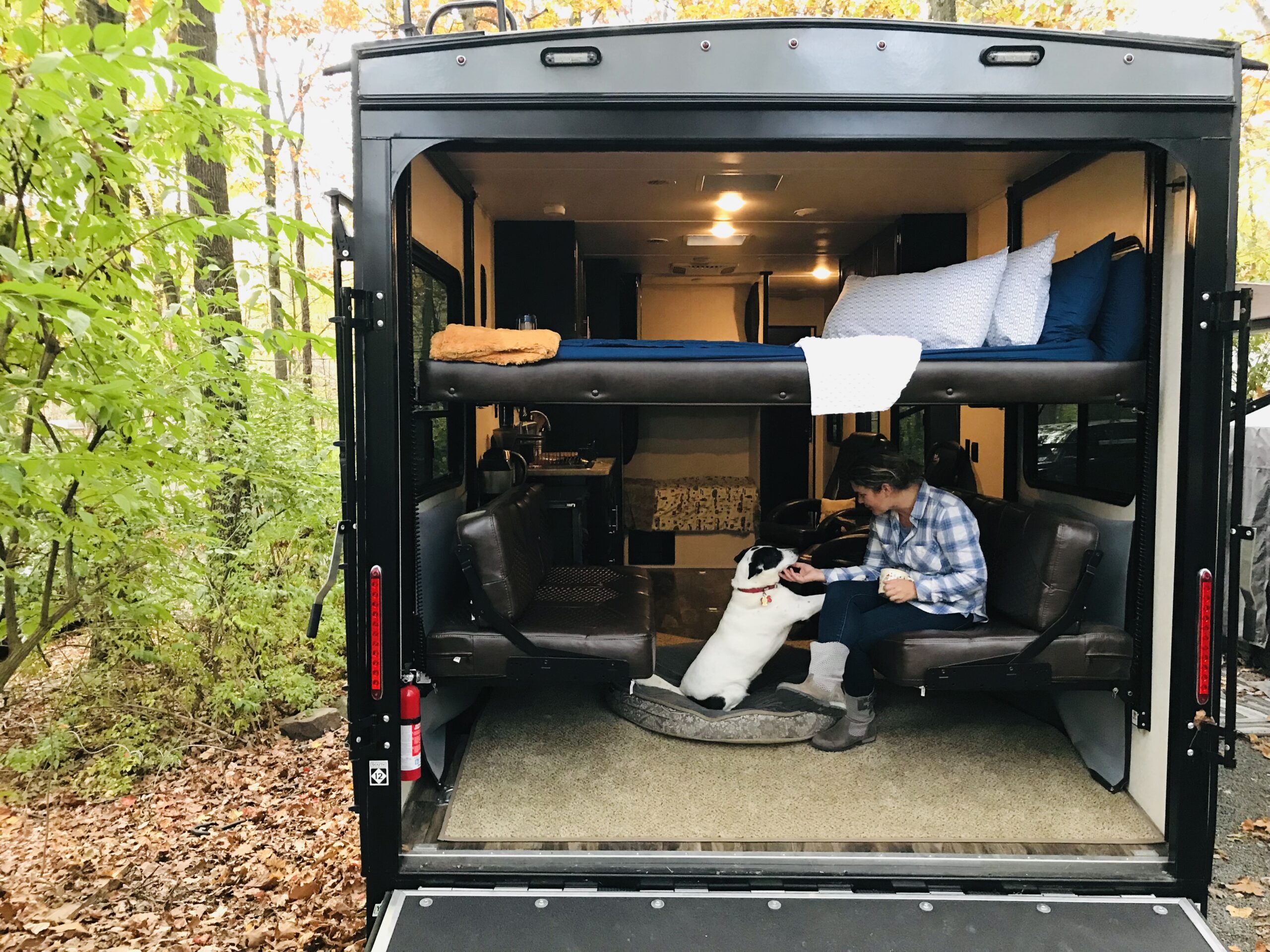
“Off season” is the ideal time to adopt a new dog if you’re an RVer.
Why?
- It gives your dog ample time to settle into your home.
- You can slowly acclimate them to car rides and short day trips.
- You can bring them into your RV while it’s parked at home so they explore it without pressure.
- Puppies can complete their vaccinations before camping season begins.
One Facebook member shared:
“We canceled a couple of camping trips so our newly adopted dog could settle in. Now we’re figuring out how to introduce her to camping this fall.” — Danielle
This is exactly the kind of patience that leads to long-term success.
Going Slow at the Campground
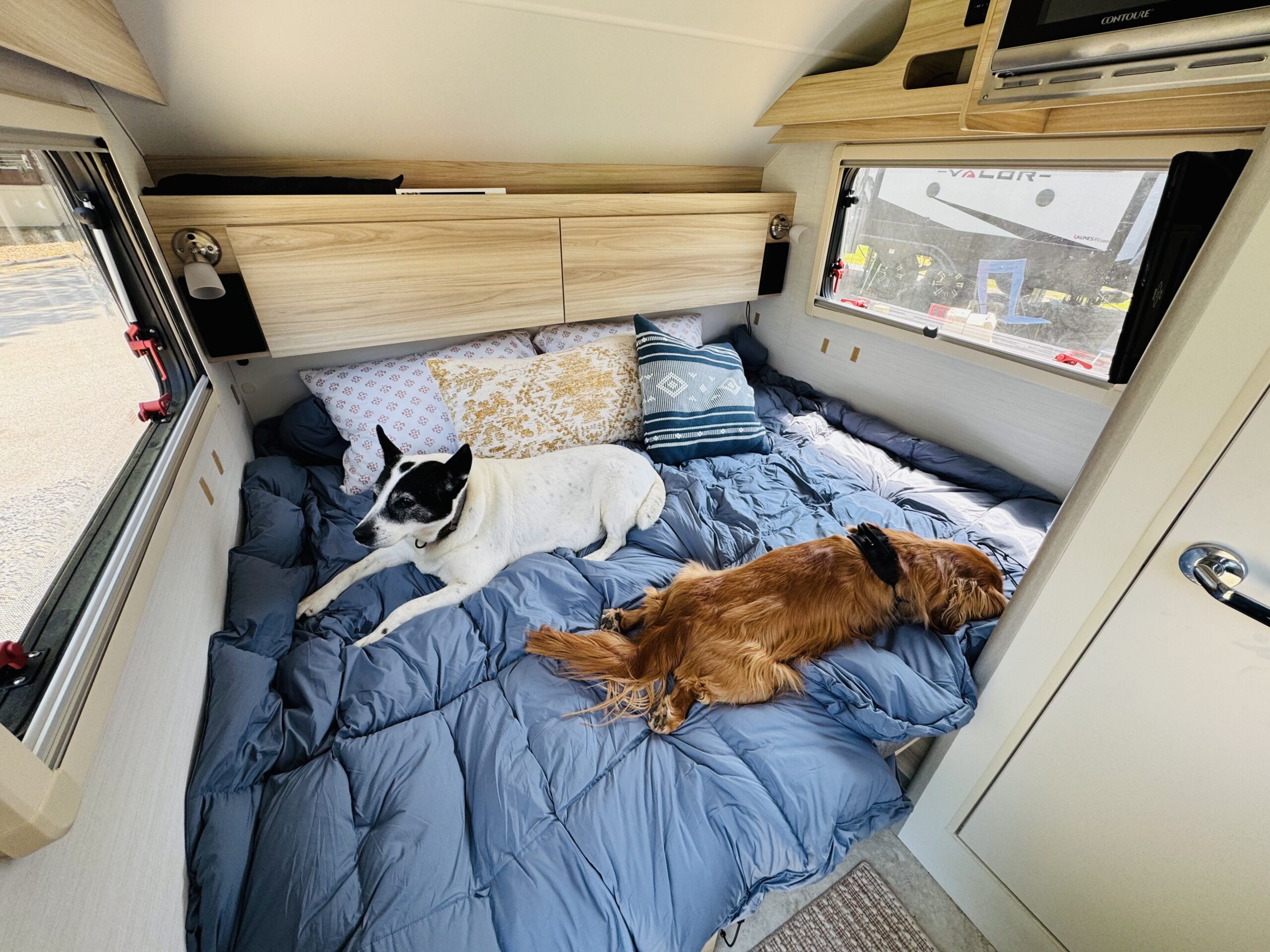
Every dog reacts differently to its first camping trip.
Some feel instantly at home (like Maggie).
Others need time (like Maverick).
Start with:
- Short periods outside
- Calm tie-out time
- Lots of reassurance
- A white-noise machine at night (Caitlin suggested this on Facebook!)
And please. Seriously. Follow leash rules.
Even the friendliest dog can react unpredictably when stressed or overstimulated.
Essential Gear for RVing with Dogs
Here’s what we recommend keeping in your RV year-round:
Pet Monitor
For peace of mind when you leave your dog in the RV. Many brands work on Wi-Fi or cellular networks.
Step Covers
RV stairs can catch nails and cause injury—protect those paws.
Multiple Tie-Out Options
No single solution works at every campground. Bring:
- A standard leash
- A cable tie-out
- A pen (if allowed)
Duplicate Supplies for the RV
Keep these in the RV permanently so they are never forgotten on trips:
- A bed
- Bowls
- Leash
- Crate
- Toys
Pet First Aid Kit
These are inexpensive and invaluable.
Vaccination Records
Keep a printed copy in your RV—or even better, in your tow vehicle’s glove compartment.
Final Thoughts: Finding the Right Match is Worth the Effort
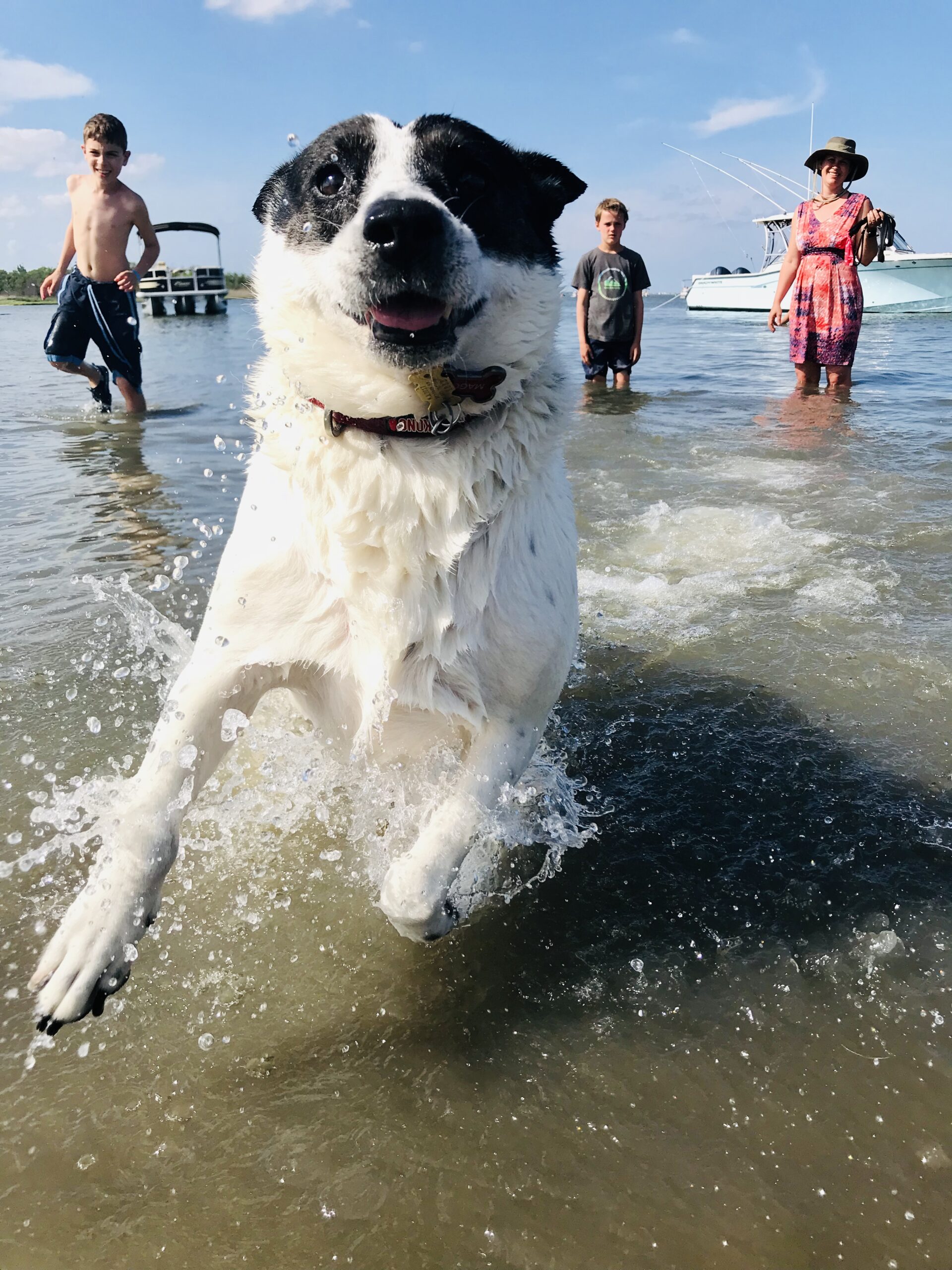
Adding a dog to your RVing family can be one of the most joyful decisions you’ll ever make. But it should also be thoughtful.
As we said in the episode, it’s okay to be selective.
It’s okay to wait.
It’s okay to prioritize your family’s lifestyle and your dog’s well-being.
There are so many incredible dogs out there—each with their own energy, story, and needs. Finding the right match is an act of love.
And from our own journey—from Maggie, who watched over our boys as they slept, to Maverick, who brings a spark of puppy joy into our days—we can say this for certain:
When a dog fits your camping life, it makes every campground, trail, and road trip even better.
If you have questions or want advice, the RV Atlas Facebook group is an amazing place to ask. Our community is full of experienced, kind, and generous dog-loving RVers.
See you at the campground,
Stephanie + Jeremy

